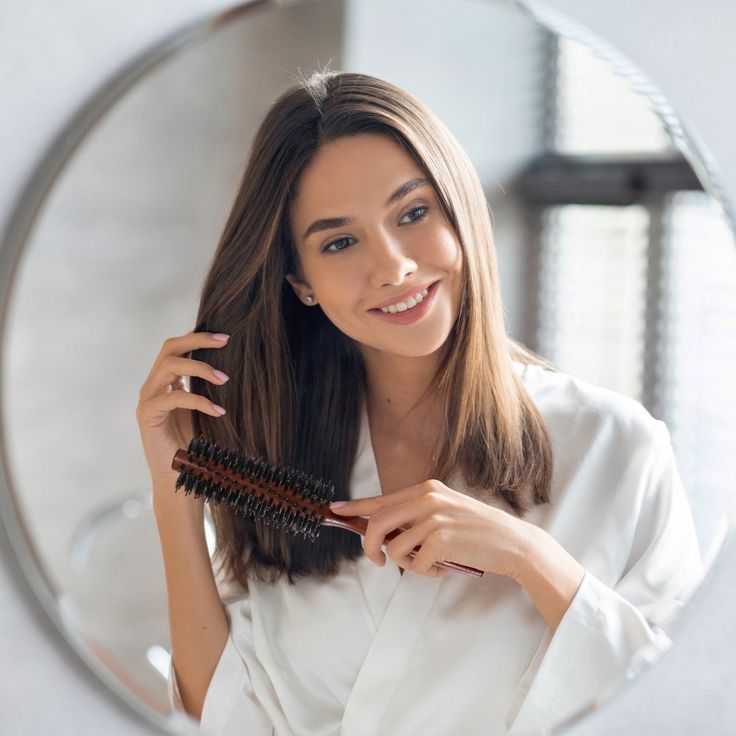
Hair fall is a common issue that many people face, and for some, it feels like a never-ending battle. Whether you’re noticing more hair in your brush, shower drain, or on your pillow, the impact of continuous hair shedding can be distressing. But why does your hair keep falling out, and more importantly, how can you stop it?
In this article, we’ll explore the potential reasons behind persistent hair fall and explain how biotin, a popular B-vitamin, might be the solution to restore your hair’s health and vitality. Read on to uncover what might be causing your hair fall and how biotin can help.
Common Causes of Persistent Hair Fall
Before we discuss how biotin can help, it’s important to first understand the underlying causes of your ongoing hair fall. While it’s normal to shed 50-100 strands of hair per day, excessive hair loss can be a sign of an issue that needs to be addressed. Let’s take a look at some of the most common causes:
1. Nutritional Deficiencies
One of the leading causes of hair fall is poor nutrition. Your hair needs a variety of vitamins and minerals to grow and stay healthy, including essential nutrients like iron, zinc, vitamin D, and biotin.
Why it happens: A lack of these nutrients, especially biotin (vitamin B7), can cause hair to become weak, brittle, and prone to breakage. Biotin is involved in the production of keratin, the protein that makes up hair, skin, and nails. Without enough biotin, your hair may become thinner, more fragile, and fall out more easily.
How biotin helps: Biotin supplementation may help restore hair health in people who are deficient in this essential nutrient. It works by supporting the production of keratin and improving hair strength, which can help reduce breakage and shedding.
2. Stress
Physical and emotional stress can have a significant impact on your hair health. Stress triggers a condition known as telogen effluvium, a type of hair loss where hair follicles prematurely enter the shedding phase.
Why it happens: Stress disrupts the natural hair growth cycle, causing more hair to fall out at once. This type of hair loss often occurs after a traumatic event, such as an illness, surgery, or major life change.
How biotin helps: While biotin won’t necessarily reduce the effects of stress, it can help strengthen your hair, making it less prone to breakage during stressful times. Biotin can also support the regrowth of hair that may have been lost due to stress, promoting healthier hair overall.
3. Hormonal Imbalances
Hormones play a crucial role in regulating hair growth, and imbalances can lead to persistent hair fall. Conditions such as thyroid disorders, polycystic ovary syndrome (PCOS), and pregnancy can cause significant changes in your hormone levels, which in turn can affect your hair.
Why it happens: When your hormones are out of balance, it can disrupt the normal growth cycle of your hair, causing it to shed excessively or grow more slowly. For example, an overactive or underactive thyroid can lead to thinning hair, while the hormonal fluctuations during pregnancy can also result in temporary hair loss.
How biotin helps: Biotin supplementation can help strengthen hair and reduce the appearance of thinning, but it may not address the root cause of hormonal imbalances. That being said, maintaining adequate levels of biotin can help support hair health and encourage regrowth, especially if your hair loss is due to a biotin deficiency or weak hair follicles.
4. Genetics and Age
Sometimes, hair fall is simply a result of genetics and the natural aging process. Androgenic alopecia, or male and female pattern baldness, is a hereditary condition that causes gradual hair thinning and hair loss, particularly at the crown and temples.
Why it happens: As you age, your hair follicles may shrink, leading to thinner hair and less growth. This process is often accelerated by genetic factors, and while it’s not something you can prevent, there are ways to manage the symptoms.
How biotin helps: Biotin won’t stop genetic hair loss, but it can help strengthen existing hair and reduce further breakage, which might make your hair look thicker. In addition, biotin may help extend the anagen (growth) phase of the hair cycle, promoting healthier and stronger hair growth over time.
5. Medical Conditions and Medications
Certain medical conditions, like autoimmune disorders, and medications, such as chemotherapy, can cause hair loss. These treatments and conditions may damage hair follicles, leading to temporary or permanent hair thinning.
Why it happens: For instance, chemotherapy attacks rapidly dividing cells, which includes hair follicles. Other conditions like lupus and diabetes can also disrupt hair growth and lead to thinning or shedding.
How biotin helps: If your hair loss is caused by a deficiency in biotin or other vitamins, supplementing with biotin may help encourage regrowth and improve the strength of your hair. However, biotin will not reverse hair loss caused by more serious medical conditions or treatments. It’s important to consult with your doctor for an appropriate treatment plan.
How Biotin Can Help Restore Hair Health
Biotin, also known as vitamin B7, is essential for maintaining healthy hair. Here’s how this powerhouse nutrient can help in the fight against persistent hair fall:
1. Strengthening Hair Follicles
2. Promoting Hair Regrowth
3. Reducing Hair Breakage
Biotin helps improve the elasticity of your hair, making it less likely to snap or break. With stronger hair, you’re less likely to experience excessive shedding due to breakage. Over time, biotin supplementation can help you achieve fuller, thicker, and healthier-looking hair.
Consultation is Key: Speak with Your Healthcare Provider
While biotin can be an effective solution for addressing certain types of hair loss, it’s essential to understand the underlying cause of your hair fall. If you’re experiencing persistent or severe hair shedding, it’s crucial to consult with a healthcare professional. A doctor or dermatologist can help determine whether biotin supplementation is right for you, or if other treatments are needed.
In some cases, hair loss may be a symptom of an underlying medical condition that requires treatment beyond biotin supplementation. By working with a professional, you can develop a personalized plan to address your hair loss and improve your hair health.
Final Thoughts: Is Biotin the Right Solution for Your Hair?
Biotin can be a helpful supplement for those experiencing hair loss due to nutritional deficiencies, stress, or other factors that affect hair health. By promoting keratin production, improving hair strength, and reducing breakage, biotin can help restore hair health over time. However, it’s important to identify the root cause of your hair fall to ensure that you’re addressing the issue effectively.
If you suspect that a biotin deficiency is behind your hair shedding, consider incorporating biotin into your daily routine. With proper use and patience, you may see significant improvements in the strength, texture, and appearance of your hair. Remember, always consult with your healthcare provider before starting any new supplement.
